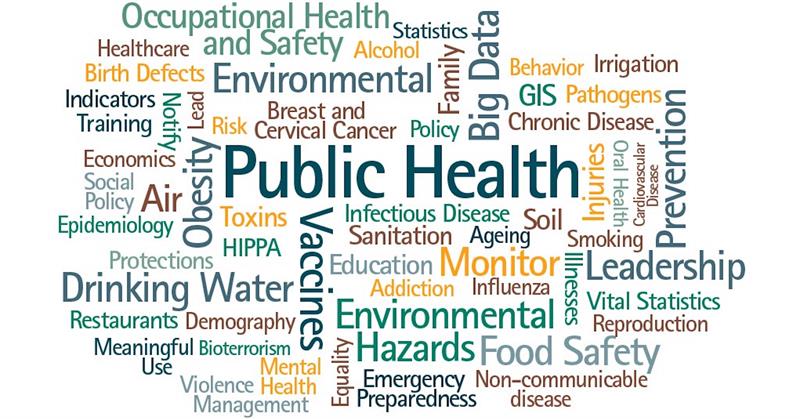THE AMENDMENTS ARE MEANT TO ADDRESS PUBLIC HEALTH IMPACTS OF CERTAIN TRADES IN RESIDENTIAL AREAS.

The Public Health Act came into enforcement in 1975 and thereafter the following regulations were enacted under this act;
· Nuisances S.I. 10/1978
· Offensive Trades S.I. 11/1978
· Communicable and Notifiable Diseases S.I. 12/1978, Amended by S.I. 21/1991
· Barber S.I. 13/1978
· Water Quality Control S.I. 14/1978
· Apartments Guest Houses & Hotels S.I. 15/1978, Amended by S.I. 26/1983
· Swimming Pools S.I. 16/1978, Amended by S.I. 27/1983
· Notification of Births S.I. 17/1978
· Bakeries S.I. 18/1978, Amended by S.I. 25/1983.
· Transportation of Human Remains S.I. 19/1978
· Barracks and Tenements S.I. 20/1978
· Disposal of Offensive Matter S.I. 21/1978
· Sewage and Disposal of Sewage and Liquid Industrial Waste Works S.I. 22/1978
· Slaughterhouse S.I. 69/1980
· Foods S.I. 70/1980, Amended by S.I. 28/1983
Given this changing environment and increased demands, the Ministry of Health and Wellness has been actively perusing the amendment of both the Public Health Act and the Regulations over the past 10 to 15 years. During that period there were extensive consultation with a wide cross sector of society and major stakeholders which guided the preparation of the final document.
These efforts were finally realized in July, 2019 when the Public Health Act was amended and made provisions that include but not limited to the following areas;
· Beauty and Wellness Center
· Spa
· Massage Parlour
· Body Art Facility
· Prohibiting or restricting the smoke from tobacco or tobacco products in public places.
In February, 2020, amendments to all the regulations outlined above were enacted. The revised legislation made provision for greater enforcement capability for key public health issues that are relevant and current in the development of the country. Under ideal conditions, regulations should be reviewed and amended as least every ten (10) years to ensure they are relevant to a changing environment and they allow for adequate enforcement. However, neither the Public Health Act nor enabling regulations have had any substantial review and amendment over the past forty (40) plus years. During this extended period, there have been extensive changes to the developmental landscape of Saint Lucia resulting in major environmental impacts that adversely affects the health and well-being of the population.
Also Saint Lucia has signed to a number of international treaties including the World Trade Organization (WTO), International Health Regulations (IHR, 2005), The International Convention for the Prevention of Pollution from Ships (MARPOL), etc. The emergence of new infectious diseases over the years such as H1N1 and Ebola has placed increased burden in ensuring management measures are in place to control the spread of these diseases. Further, the demands being placed on the Ministry of Health, continue to amass and there is high expectation by the public that there will be adequate response and resolution to their needs. With regard to the Nuisance and Offensive and Hazardous Trade Regulations, the Environmental Health Division have registered approximately two thousand and forty-five (2045) public health complaints over the past five years. The nature of the majority of complaints lodged by the public have to do with the following;
Ø Odour Nuisance
Ø Waste Water Disposal
Ø Solid Waste Disposal
Ø Air Pollution
Ø Vector (Mosquito, rodent) Nuisance
Ø Animal Rearing (pig pens, chicken coops)
Ø Dog Kennels
Ø Over Hanging Tree/vegetation
Ø Charcoal Pit
Ø Mould growth
Ø Occupational Health and Safety
Ø Bed Bug Infestation
Ø Noise pollution
Ø Defective Septic Tank
Ø Food Handling
Ø Derelict Vehicles
Ø Smoke pollution
Ø Excreta Disposal (defective septic tank, pit toilet)
Ø Dead Animal
There has also been a significant increase in the number of trades which are categorized as offensive trades under the Public Health Act. The amendments are meant to address public health impacts of such trades in residential and highly populated areas. The public health impacts from many of these said trades continue to create nuisances that adversely impact the health of citizens including vulnerable individuals with pre-existing medical conditions. Moreover, the regulation seeks to create a balance where such trades can be carried out in a manner that will minimize the impact on public health taking into consideration that there is no clear-cut land zoning as most areas contain mixed use land development in Saint Lucia.
The spraying of vehicles, animal rearing, charcoal making for example in residential areas where the operators do not have adequate facilities to contain the hazards emanating from their operations continues to adversely affect the health of residence in these areas. This has resulted in the Ministry of Health being inundated with complaints. It is noteworthy that these activities have not only been the subject of many public complaints they have also proven to be extremely difficult to regulate and resolve. Therefore, the amendment has brought these activities under a legislative framework and allow for greater capability to enforce thereby reducing the health impacts to employees, and persons living in close proximity to these operations.
It is clearly stated in the Offensive Trade Regulations of 1978 Section 3 that: (1) A person shall not establish an offensive trade without first making application to the Public Health Board. (2) An application shall be in writing, stating— (i) the name and address of the person responsible for carrying on the offensive trade; (ii) the nature of such trade; and (iii) the address of the proposed premises. (3) The Public Board of Health, before issuing a licence shall cause the premises to be examined. Therefore, the amended Offensive and Hazardous Trade Regulations S.I. 80 of 2020 now strengthens the above stated position.